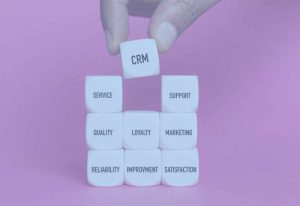
In today’s competitive business landscape, managing customer relationships is essential to the success of any service company. A Customer Relationship Management (CRM) system can help service companies to streamline their operations, improve customer satisfaction, and increase profitability. In this article, we’ll explore what service companies should know when implementing a CRM system.
What is a CRM system?
A CRM system is a software application that helps companies manage interactions with their customers. It allows companies to store customer information, track customer interactions, and automate communication with customers. A CRM system can also provide insights into customer behavior and preferences, helping companies to make informed business decisions.
Benefits of a CRM system for service companies
- Streamlined Operations: A CRM system can help service companies to streamline their operations by automating many of the routine tasks associated with customer management, such as data entry, appointment scheduling, and follow-up communication.
- Improved Customer Satisfaction: A CRM system can provide service companies with a 360-degree view of their customers, allowing them to provide personalized service and address customer needs more effectively.
- Increased Sales and Revenue: A CRM system can help service companies to identify sales opportunities and provide targeted marketing and sales outreach to customers.
- Enhanced Communication: A CRM system can help service companies to stay in touch with customers through automated communication, such as email campaigns, and provide real-time updates on service requests.
- Better Data Management: A CRM system can help service companies to store customer information securely and track customer interactions, ensuring that the company has accurate data to inform business decisions.
Key features to consider when selecting a CRM system for a service company
- Customization: A CRM system should be customizable to meet the specific needs of a service company, such as appointment scheduling, service requests, and customer communication.
- Integration: A CRM system should be able to integrate with other systems used by a service company, such as accounting software, email marketing platforms, and customer service tools.
- Reporting and Analytics: A CRM system should provide insights into customer behavior, such as purchasing patterns, service requests, and feedback, to inform business decisions.
- Mobile Access: A CRM system should provide mobile access, allowing service technicians to access customer information and update records in real-time while in the field.
- Security: A CRM system should provide robust security measures to protect customer information, such as encryption and user access controls.
Conclusion
Implementing a CRM system can provide significant benefits to service companies, such as improved customer satisfaction, increased sales, and streamlined operations. When selecting a CRM system, service companies should consider customization, integration, reporting and analytics, mobile access, and security to ensure that the system meets their specific needs and requirements.




